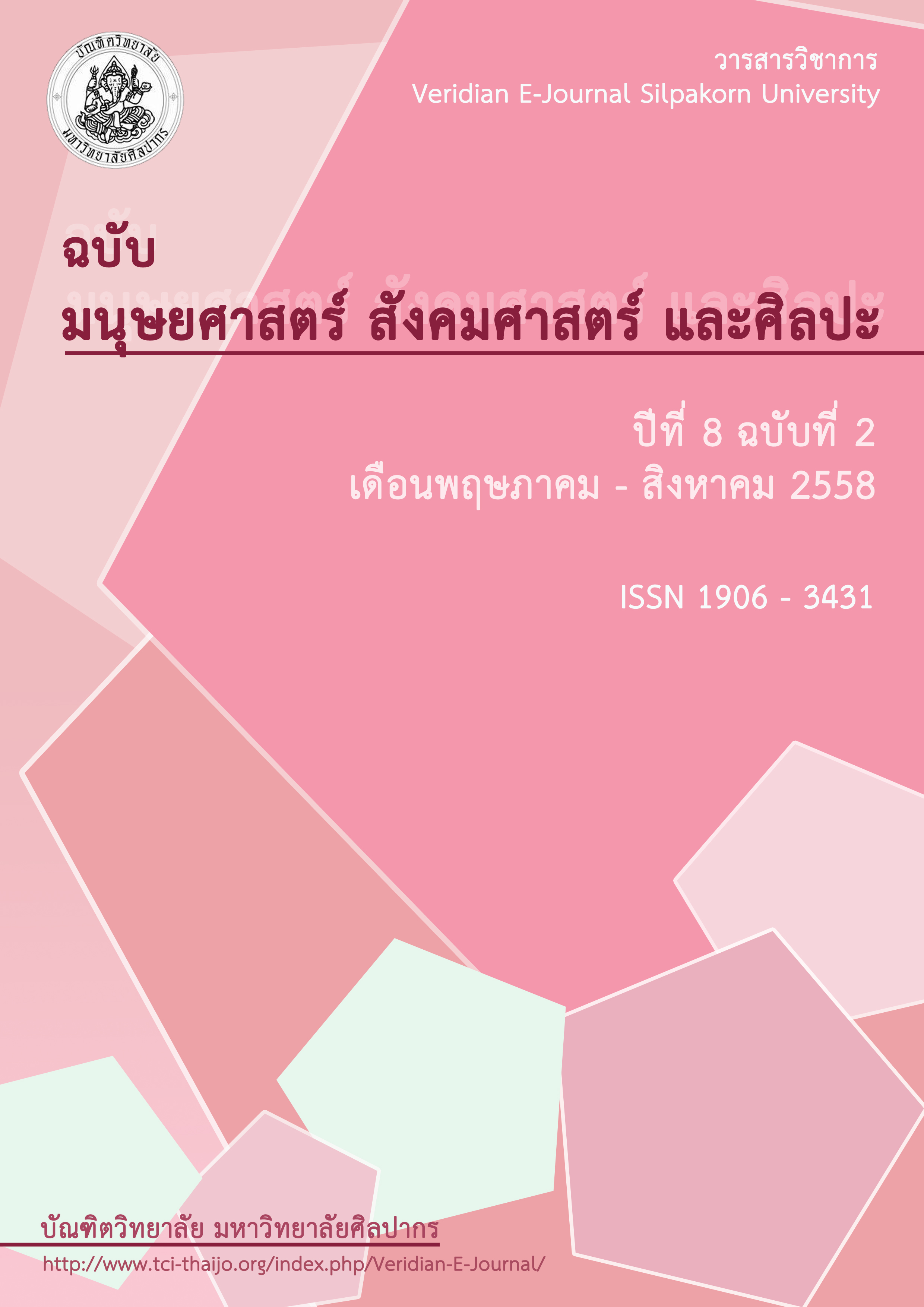รูปแบบการบริหารจัดการการนิเทศการศึกษา สำหรับศตวรรษที่ 21
Main Article Content
Abstract
บทคัดย่อ
การวิจัยครั้งนี้ มีวัตถุประสงค์เพื่อศึกษา 1) องค์ประกอบการบริหารจัดการการนิเทศการศึกษา ระดับการศึกษาขั้นพื้นฐาน ของสำนักงานเขตพื้นที่การศึกษาประถมศึกษา สำหรับศตวรรษที่ 21 2) รูปแบบการบริหารจัดการการนิเทศการศึกษา ระดับการศึกษาขั้นพื้นฐานของสำนักงานเขตพื้นที่การศึกษาประถมศึกษา สำหรับศตวรรษที่ 21 และ 3) อันดับความสำคัญขององค์ประกอบและผลการยืนยันรูปแบบการบริหารจัดการการนิเทศการศึกษา ระดับการศึกษาขั้นพื้นฐานของสำนักงานเขตพื้นที่การศึกษาประถมศึกษา สำหรับศตวรรษที่ 21 กลุ่มตัวอย่างคือ สำนักงานเขตพื้นที่การศึกษาประถมศึกษา 127 เขตพื้นที่ ผู้ให้ข้อมูล เขตพื้นที่ละ 4 คน ได้แก่ ผู้อำนวยการสำนักงานเขตพื้นที่การศึกษาประถมศึกษา ศึกษานิเทศก์ ผู้อำนวยการโรงเรียน และครูผู้สอน ผู้ให้ข้อมูลรวมทั้งสิ้น 508 คน เครื่องมือที่ใช้ในการวิจัย ได้แก่ แบบสัมภาษณ์แบบไม่มีโครงสร้าง แบบสอบถาม และแบบสอบถามความคิดเห็น สถิติที่ใช้ในการวิจัยคือ ค่าความถี่ ค่าร้อยละ ค่ามัชฌิมเลขคณิต และส่วนเบี่ยงเบนมาตรฐาน การวิเคราะห์ปัจจัยเชิงสำรวจ และสถิติวิเคราะห์ความสัมพันธ์เชิงสาเหตุ
ผลการวิจัยพบว่า
1. องค์ประกอบรูปแบบการบริหารจัดการการนิเทศการศึกษา ระดับการศึกษาขั้นพื้นฐาน ของสำนักงานเขตพื้นที่การศึกษาประถมศึกษา สำหรับศตวรรษที่ 21 ประกอบด้วย 5 องค์ประกอบ คือ 1) การบริหารจัดการ 2) การมีส่วนร่วม 3) การนิเทศ 4) การใช้เทคโนโลยี และ 5) การประเมินผล
2. รูปแบบการบริหารจัดการการนิเทศการศึกษา ระดับการศึกษาขั้นพื้นฐาน ของสำนักงานเขตพื้นที่การศึกษาประถมศึกษา สำหรับศตวรรษที่ 21 เป็นพหุองค์ประกอบที่มีความสัมพันธ์กัน โดยองค์ประกอบด้านการ
มีส่วนร่วม มีอิทธิพลทางตรงต่อองค์ประกอบด้านการบริหารจัดการ และมีอิทธิพลทางอ้อมต่อองค์ประกอบด้านการประเมินผล การใช้เทคโนโลยี และการนิเทศ
3. อันดับความสำคัญแต่ละองค์ประกอบของรูปแบบการบริหารจัดการการนิเทศการศึกษา ระดับการศึกษาขั้นพื้นฐาน ของสำนักงานเขตพื้นที่การศึกษาประถมศึกษา สำหรับศตวรรษที่ 21 ตามความคิดเห็นของศึกษานิเทศก์เรียงลำดับได้ ดังนี้ 1) การบริหารจัดการ 2) การประเมินผล 3) การมีส่วนร่วม 4) การนิเทศ และ5) การใช้เทคโนโลยี
4. ผลการยืนยันรูปแบบการบริหารจัดการการนิเทศ สำหรับศตวรรษที่ 21 ผู้ทรงคุณวุฒิมีความเห็นสอดคล้องกันว่า รูปแบบมีความเหมาะสม เป็นไปได้ ถูกต้อง และนำไปใช้ประโยชน์ได้สอดคล้องกับกรอบแนวคิดทฤษฎีของการวิจัย
Abstract
The purposes of this research were to identity 1) the factors of the educational supervision management for the 21st century, 2) the model of the educational supervision management for the 21st century, 3) the priority setting of the factors and the confirmation of the model of the educational supervision management for the 21st century. The samples were 127 Primary Educational Services Area Offices. The respondents from each office consisted of 4 persons, in total of 508 respondents. They were a director and a supervisor from Primary Educational Service Area Offices while a school director and a teacher from school under supervision. Research instruments were interview form, questionair, opinionair and rating scale checklist. Statistics for data analysis were frequency, percentage, arithmetic mean, standard deviation, exploratory factor analysis and path analysis.
The findings of this research were as follows:
1. There were 5 factors for the educational supervision management for the 21st century which consisted of 1) management 2) participation 3) supervision 4) technology and 5) assessment.
2. The model of the educational supervision management for the 21st century consisted of correlated multi-factors. It showed that factor of participation had direct effected to Management and indirect effected to, assessment, technology and supervision.
3. When considering to the order of there components based on the opinion of supervisor they were ordered as 1) Management 2) Participation 3) Supervision 4) Technology and 5) Assessment respectively.
4. The experts confirmed the model of the educational supervision management for the 21st century were found in accordance with research framework and the standard of propriety, feasibility, utility and accuracy.
